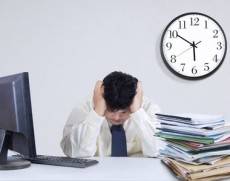May 9, 2016
Women not reaping full wellbeing benefits of flexible working 0
 Working flexible hours is associated with lower job satisfaction among women, but greater satisfaction among men, a new study claims. The research explores the impact of flexible working on job, leisure and life satisfaction and suggests that women are not experiencing the full benefits. According to Dr Daniel Wheatley, lecturer in Economics at Nottingham Business School, Nottingham Trent University; the research suggests that while flexible working generates a number of benefits, working part-time or reduced hours has significant negative impacts on job satisfaction. He explains: “While some women are able to use reduced hours optimally, such as those working part-time following maternity leave, those using reduced hours for lengthier periods because of commitments such as childcare may feel trapped in ‘restrictive’ flexible employment. They may only be able to gain low skilled employment and may experience limitations in career progression.”
Working flexible hours is associated with lower job satisfaction among women, but greater satisfaction among men, a new study claims. The research explores the impact of flexible working on job, leisure and life satisfaction and suggests that women are not experiencing the full benefits. According to Dr Daniel Wheatley, lecturer in Economics at Nottingham Business School, Nottingham Trent University; the research suggests that while flexible working generates a number of benefits, working part-time or reduced hours has significant negative impacts on job satisfaction. He explains: “While some women are able to use reduced hours optimally, such as those working part-time following maternity leave, those using reduced hours for lengthier periods because of commitments such as childcare may feel trapped in ‘restrictive’ flexible employment. They may only be able to gain low skilled employment and may experience limitations in career progression.”




































